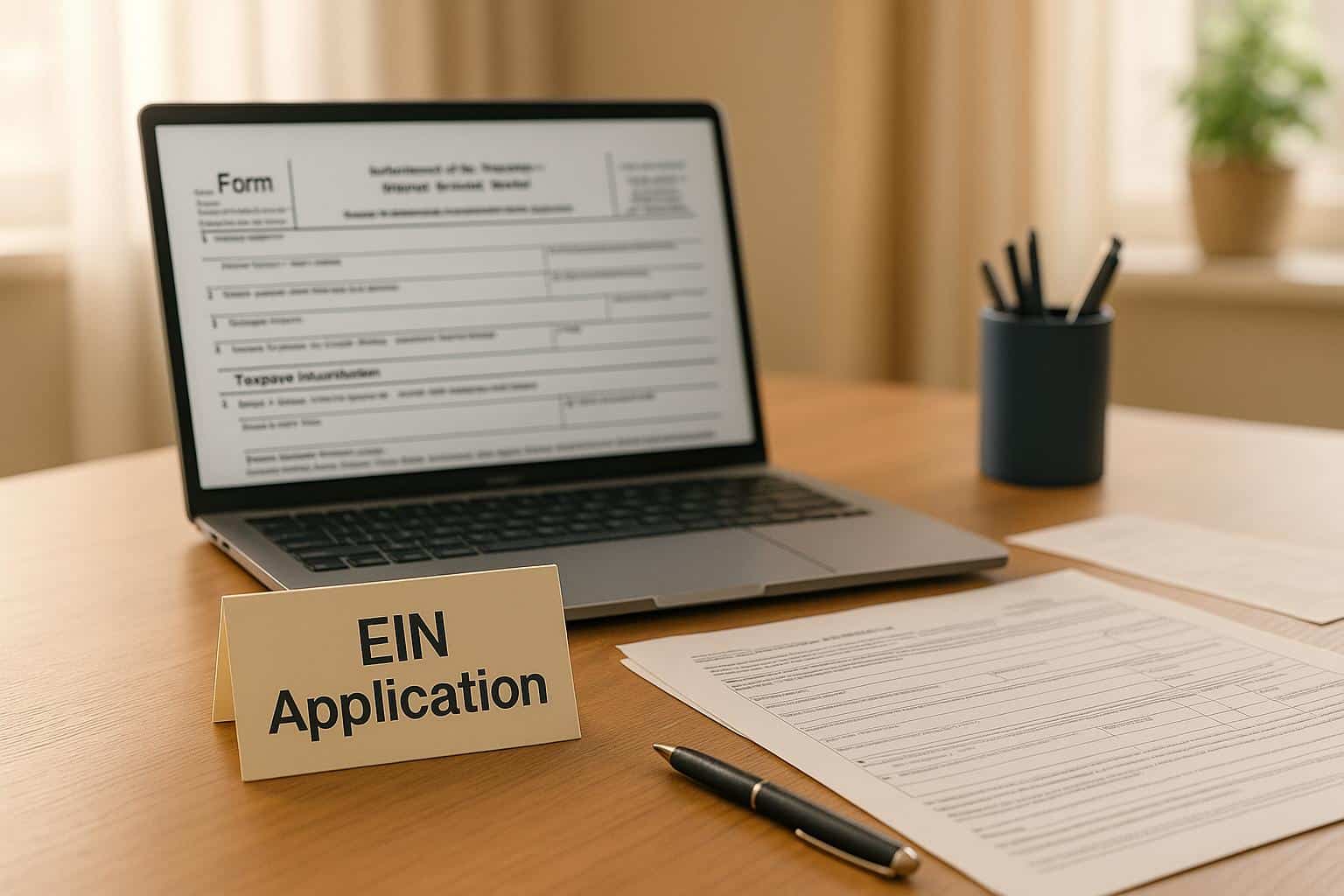Moving your LLC to another state involves legal and financial steps, and mistakes can lead to double taxation, compliance issues, or extra costs. Here’s a quick summary of how to do it right:
- Choose a Method:
- Close and Restart: Dissolve your LLC and start fresh in the new state.
- State-to-State Transfer (Domestication): Move your LLC without losing its legal identity (if allowed by both states).
- Multi-State Registration: Operate in multiple states by registering as a foreign LLC.
- Key Steps Before Moving:
- Settle taxes and debts.
- Update licenses, permits, and contracts.
- Appoint a new registered agent.
- Avoid Common Pitfalls:
Don’t skip dissolving or transferring your LLC properly – this can cause compliance and tax problems.
| Method | Best For | Downside |
|---|---|---|
| Close and Restart | A fresh start | Loss of business history |
| State-to-State Transfer | Maintaining continuity | Limited to states that allow it |
| Multi-State Registration | Operating in multiple locations | Higher ongoing costs |
Pick the best option for your business and keep your records updated to ensure a smooth transition.
3 Ways to Move Your LLC
Once you’ve completed the necessary preparations, consider these three methods to relocate your LLC. Each option has its own process and implications, so choose the one that fits your business needs best.
Method 1: Close and Restart
This approach involves dissolving your current LLC and creating a new one in the state where you plan to operate. While it requires careful planning to avoid interruptions, it offers a fresh start.
Steps to Follow:
- File dissolution paperwork in your current state.
- Settle any outstanding taxes.
- Establish a new LLC in your target state.
- Apply for a new EIN (if your existing one cannot be transferred).
- Renew any required licenses and permits.
| Pros | Cons |
|---|---|
| Can be done in any state | May disrupt business |
| Creates a clean start | Requires new contracts |
| Simplifies tax obligations | Erases business history |
Method 2: State-to-State Transfer (Domestication)
If both your current and target states allow LLC domestication, this method lets you move your business without losing its legal identity or EIN. It’s an efficient way to maintain continuity.
Key Requirements:
- Both states must permit LLC domestication.
- Your LLC must be in good standing in its current state.
- File the necessary conversion documents and update your registered agent information.
Method 3: Multi-State Registration
If you need to operate in more than one state, foreign qualification allows your LLC to expand while keeping its original structure intact. This method is ideal for businesses with multi-state operations.
Ongoing Responsibilities:
- File annual reports as required by each state.
- Pay state taxes based on where you operate.
- Follow all regulations in each jurisdiction.
Important Note: Be prepared for costs like filing fees, registered agent fees, and compliance expenses, which vary depending on the state.
How to Decide:
- Choose Close and Restart if you want a complete reset.
- Go with State-to-State Transfer to maintain continuity.
- Opt for Multi-State Registration if you need to operate in multiple states simultaneously.
Required Steps for LLC Relocation
State and Federal Requirements
Relocating your LLC means ensuring your records align with the rules of your new state and federal regulations. Carefully review the guidelines in your new state to stay compliant during the transition. Once you’ve reviewed the requirements, make sure to update your key business details.
Business Information Updates
Keeping your LLC’s records up to date is crucial for a hassle-free move. Here’s what you need to address:
- Update your registered agent details
- Change your business address on all official documents
- Organize and centralize your company formation documents for easy access
Tools like Business Anywhere can simplify these updates, helping you maintain accurate business records throughout the relocation process.
sbb-itb-ba0a4be
Business Anywhere Tools for LLC Moves
Relocating your LLC involves several important steps, and Business Anywhere’s dashboard brings together key services to make the process easier. These tools are designed to simplify every stage of moving your LLC.
Registered Agent Services
Business Anywhere provides registered agent services across all 50 U.S. states, helping you stay compliant when managing legal documents.
Mail Management System
The virtual mailbox includes features like:
- Unlimited document scanning and storage
- Mail forwarding to any location worldwide
Compliance Tracking
Keep up with state requirements using:
- Automated alerts for filing deadlines and renewals
- Centralized storage for formation documents and permits
- Notifications about compliance updates
These tools help ensure you meet both state and federal requirements.
Integrated Services
With everything in one platform, Business Anywhere simplifies the process of managing your LLC. Services like company formation assistance, online notary options, document storage, and compliance monitoring are all included. This all-in-one approach reduces the hassle of juggling multiple providers and minimizes the risk of missing important deadlines, making it easier to manage remote teams across different states.
Next Steps for Your LLC Move
Now that you’ve reviewed the compliance and documentation basics, here’s how to finalize your LLC relocation.
Start by deciding on the right relocation method for your business. Options include closing and restarting your LLC, transferring it to a new state, or registering it as a foreign LLC.
Get Essential Services in Place
Make sure to set up these key services to stay compliant and operational during the move:
- Registered agent: Ensure you meet state requirements by designating a reliable agent.
- Virtual mailbox: Keep your business correspondence organized and accessible.
- Compliance tracker: Stay on top of deadlines and legal requirements.
Organize Important Documents
Keep digital copies of critical business documents, such as:
- Formation papers and filing receipts
- Business licenses and permits
- Tax registrations and certificates
- Insurance policies
- Contracts with vendors and clients
- Bank account details
Ensure Smooth Operations
Use an integrated dashboard to oversee the transition. Automate reminders for deadlines and compliance tasks in your new state. This approach helps you stay organized, meet legal requirements, and keep your business running without interruptions.
FAQs
What legal and financial risks can arise if you move your LLC to another state incorrectly?
Improperly moving your LLC to another state can lead to serious legal and financial consequences. You might face penalties or fines for failing to comply with state-specific regulations, such as not properly dissolving your LLC in the original state or failing to register it correctly in the new one. Additionally, you could lose your limited liability protection, exposing your personal assets to potential risks.
From a financial perspective, incorrect handling could result in double taxation or unnecessary fees if your LLC is seen as operating in both states. To avoid these issues, it’s crucial to follow the proper procedures, such as domestication, dissolution and reformation, or registering as a foreign LLC, depending on your circumstances.
How can I find out if my current and new states allow LLC domestication for moving my business?
To determine if your current state and the state you want to move to allow LLC domestication, start by checking the laws in both states. Domestication rules vary, and not all states permit this process. You can typically find this information on the official website of each state’s Secretary of State or business registration office.
If domestication isn’t an option, you may need to explore alternative methods, such as dissolving and reforming your LLC or registering as a foreign LLC in the new state. Consulting a legal or business professional can also help ensure compliance with state-specific requirements.
What responsibilities and costs should I expect when registering my LLC in more than one state?
When you register your LLC in multiple states, you’ll need to comply with the ongoing responsibilities and fees required by each state. These typically include filing an annual report or renewal, maintaining a registered agent in each state, and staying up-to-date with state-specific taxes and fees.
Costs can vary widely depending on the state, but common expenses may include registration fees, annual filing fees, and potential franchise taxes. Additionally, you’ll need to ensure compliance with local regulations, which may require additional administrative work or legal assistance. Staying organized and proactive is key to managing these responsibilities effectively.









